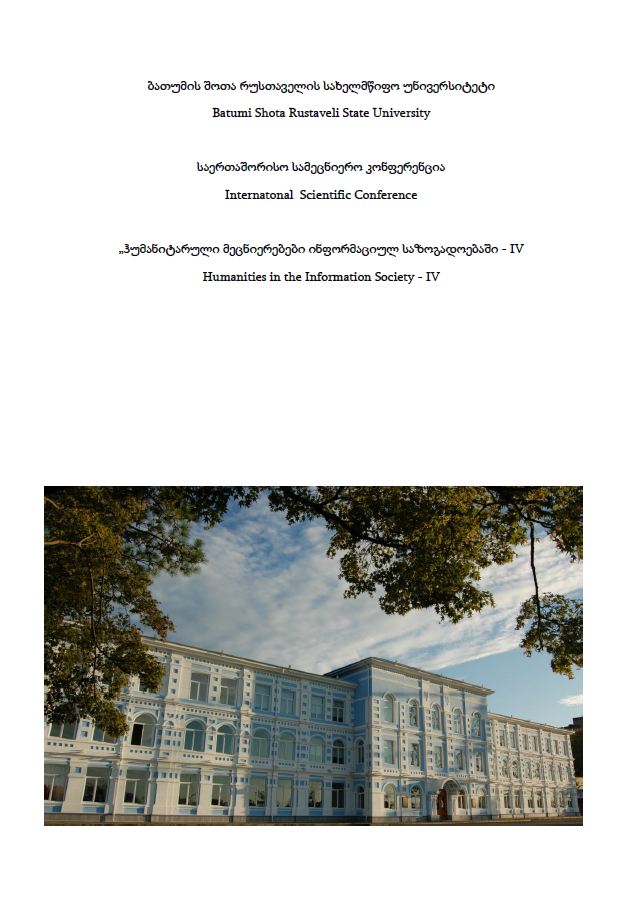Hate Speech And Media During The Election Period (2020 Parliamentary Elections Of Georgia)
Main Article Content
Abstract
Hate speech is a challenge for the world in the 21st century because it it is a growing and global problem. In socio-political discussions, hate speech is used openly and in public. Spreading of a hate-filled narrative, willingly or not, is contributed by the mass media. Today, hateful phrases are excessively heard in the form of humiliation, discrimination, threats or in any other forms in almost all media spaces and formats.
Hatred, in many cases, is a provoking factor of violence and crime. This crime can be of different types and it can happen in any space: on the street, at school, in the family, in places of employment and even in public services...
The perception of hate speech varies depending on the linguistic and national context of individual countries, therefore there is no universal international definition.
What makes the fight against hate speech difficult is that it is closely connected to freedom of expression. It is often disputed whether speech is within the limits of freedom of expression or if it goes beyond its scope.
Freedom of expression is recognized by all internationally important documents related with human rights. Freedom of speech and expression includes the right to expression of critical opinions, which may be offensive, outrageous or controversial. Hate speech is a problem for any country today, and obviously Georgia is among them. Hate crime threatens democracy, the basic foundation of society and the rule of law, because it "Attacks" the right to dignity and equality of all human beings -the fundamental principle enshrined in the UN Human Rights Act I n the first article of the Universal Declaration.
Georgia regulates various forms of violence at the legislative level. There is a "National Violence Prevention Strategy", which expresses the readiness of the state to respond to the challenges that are in today's society and to prevent violence with the participation of various public institutions.
The strategy covered current areas of violence prevention: Prevention of violence in the family, school and street with appropriate mechanisms. The same document defines the role of state structures as well as local government and society itself in the prevention of violence, however, the specialists did not say anything about violence peculiarities in political discussion spaces...
I think it is very important to continue research in this direction - violence in political discussions, especially - during election campaigns. My interest is connected to these issues. I believe that the results of the research of the social influence of the language of violence in election campaigns will allow specialists to prevent the violence of narrative discourse, which will make the environment - safer, and the society much more democratic and humane.
